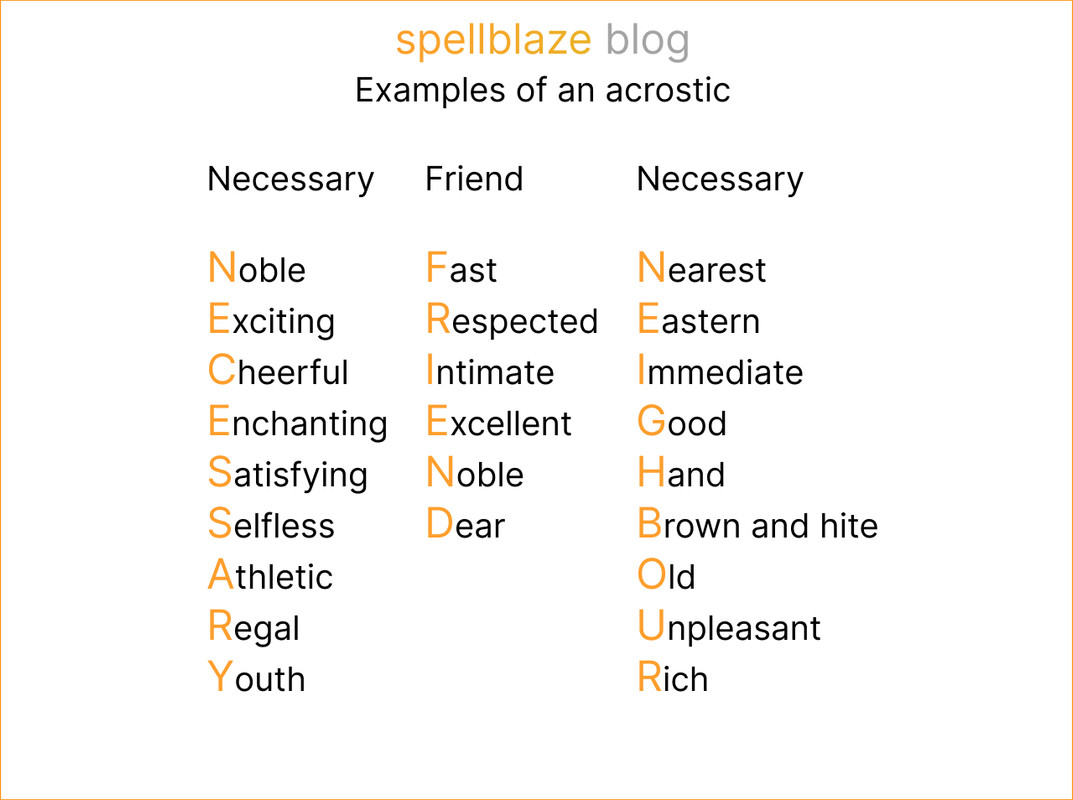7 ways to improve spelling for adults [2023]
Boluwatife Ajibola · Updated May. 7, 2023
![7 ways to improve spelling for adults [2023]](https://i.postimg.cc/HLtLdJjs/learn.jpg )
Many adults communicate online via text messages, emails, and social media platforms like Facebook and Twitter. We also share information on blogs, forums, and news sites. In addition, adults have dramatically increased the number of abbreviated words and phrases used in everyday writing.
While many people may know how to spell correctly, a surprising amount of adults have poor spelling abilities. A study by the found that most adults have trouble spelling everyday words.
What makes English spelling difficult?
English spelling can be difficult for many reasons. For example, some adults with dyslexia, ADHD, dyspraxia, and Dysgraphia can struggle with spelling words correctly. Also, some adult learners have poor spelling ability because of the way they were taught in school at a young age. But you can develop your spelling skills if you practice enough and give it time.
So how can I learn the correct spellings of words?
There is a multitude of ways to improve your spelling in the English language as poor spellers, but these are some of the most popular ones:
Know the spelling rules and their exception.
Spelling rules are the conventions used in writing English words that govern how you combine letters to form words. This method of practicing spelling can increase your spelling knowledge by showing you how a word is spelled if it follows a specific pattern. Here are some common ones:
'I' before 'E' except after 'C'.
Examples: ceiling, receive, receipt, conceived, priest, etc.
Exceptions: Neither, weird, foreign, leisure, seize, forfeit, height, etc.
'U' always follows 'Q'.
Examples: quiz, quick, question, queen, quest, quill, quart, quit, etc.
The exception to this rule is tiny, and most are ancient words.
A suffix will replace 'Y' if it is at the end of a word and comes before a consonant.
beauty >> beautiful, try >> tried, happy >>happier, etc.
dry >> dryness, shy >> shyness, sly >> slyness, etc.
Want to get better at spelling ?
Spellblaze can help you find your challenging words, learn those words, and always remember them.
Learn the Dolch or sight words
An essential way of developing your spelling skills is by using Dolch words. Dolch or sight words are used frequently in the English language for writing and speaking. In a typical paragraph, we use them for about 50% of the text we write. Also, they are not too difficult to learn.
Here are some common Dolch words:

Recognize the prefix and suffix
Prefixes and suffixes are words that precede or follow another word to change its meaning. They are perfect for breaking down words that may seem complex. Plus, they can give you more insight into the meaning of a word.
Take a look at some common prefixes and suffixes:
Prefix
'ex-': out
Examples: exit, exclude, expand, etc
'hyper-': beyond, more than, more than usual, etc
Examples: hypersonic, hyperactive, etc.
Suffix
'-ate': become
Examples: regulate, eradicate, enunciate, repudiate, etc.
'-ful': notable for
Examples: fanciful, resentful, woeful, doubtful, etc.
Check out the origin of the word.
There is a lot of irregular spelling in the English language. Words with silent g or k can be challenging. We took them from a different language and culture. So it can be beneficial to know where they are from to learn proper spelling. The best way to find the word origin of some of these words is by using an .
Some words and their origin.
Learn the way different letter combination sounds
Another good way to dissect a word is by using sounds. When you hear a word, more often than not, there are letter combinations that make a different sound. By knowing the word combinations, you can try to remember how the word should be spelled.
Examples:
/g,(g)/ girl, digger, ghost
/n,(n)/nest, penny, knife, gnome
/s,(s)/ sun, dress, city, geese, castle
The only issue with sounds is that there are a lot of word combinations that sound the same. So it can be challenging to know which exact combination to use. Supporting this method with other spelling practices like syllables is a good idea.
Use syllables.
Syllables are the oldest trick in the book for improving your spelling ability. They are the smallest units in a speech that can be recognized as words. They effectively break down long and complex terms so that you can memorize each chunk of letters using other spelling methods.
Examples:
Use Mnemonics to memorize complex words.
What exactly are mnemonics? Mnemonics are mental tools that help us remember things. We can use them in many different ways. For example, there are some words that you may have tried to learn but often forget when you need them the most, even if you use a spelling method. Mnemonics are the way to go for those types of words. Many of us already use them in our daily lives. For example, we use it to memorize phone numbers, dates, names, addresses, etc., so how can mnemonics improve your spelling ability? There are different types of mnemonics, but the one we will be checking out today is called acrostics.
What is an acrostic?
An acrostic is a piece of writing in which a particular set of letters—typically the first letter of each line, word, or paragraph—spells out a word or phrase with special significance to the text. Read more at Litcharts.
Here are some common examples:
